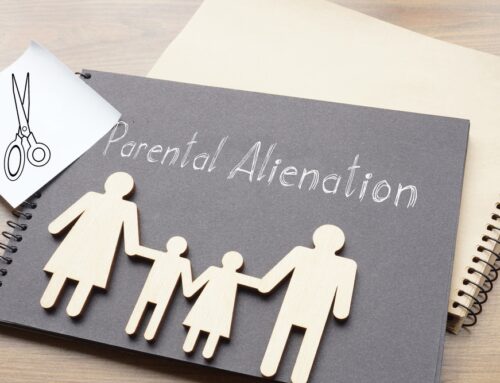A separation agreement, when used correctly, can provide clarity and certainty in what can be a very difficult and in some instances turbulent process. If you’re thinking about getting divorced or dissolving a civil partnership, a separation agreement sets out who’ll pay the mortgage, etc until you decide whether or not to go ahead with the divorce or dissolution.
But it’s important to ensure that a separation agreement protects your family’s rights. There are some simple rules to follow:
What is a Separation Agreement?
A separate agreement can be used when you haven’t decided whether to divorce or dissolve your civil partnership. Or, if you can’t actually do so yet. It is a written agreement that sets out any financial arrangements while you are separated.
This could include:
- Which party continues to live in the family home
- What will happen when the family home is sold
- Who will continue to pay the mortgage for the family home
- Who will continue to pay the household bills for the family home
- Where any children will live, and how child access will work
- Whether any child maintenance payments will be made
- What will happen with any debts (e.g. credit cards and loans)
- What will happen with any assets (e.g. savings and cars)
- What will happen to any shared items (e.g. furniture or any other items bought jointly)
Pros and Cons of a Separation Agreement
Positives
- It sets out plans which are agreed upon by both parties and can take out any future disagreement
- You agree to not live together, therefore there is no possibility of either party alleging that the other party has deserted the other
- It shows that both parties have seriously considered that the partnership has ended
- A separation agreement is very flexible, and you can choose what is included
- It provides clarity and certainty
- If fairly negotiated, the court will uphold them, even though they are not legally binding
Negatives
- They are not legally binding
- Once the document is signed, if either party wants to make any changes, both parties have to agree to make these changes
- A court could disregard some or all of the agreement if you proceed to get a divorce or dissolve a civil partnership
Is a Separation Agreement legally binding?
No, a separation agreement isn’t technically legally binding. However, a properly and fairly negotiated separation agreement document will be upheld by the court if challenged.
How to ensure that a Separation Agreement protects your rights
Separation Agreements exist to help and support both parties in understanding their rights and responsibilities during a separation. This document is flexible, and both parties communicate to come to a mutual agreement of what is included in the agreement and what isn’t. Plus, if the breakdown in the relationship should turn more difficult and turbulent, then the agreement is a good point of reference.
Should you decide that you would like to go ahead with the divorce or dissolution of the civil partnership, then both parties know where they stand.
However, there are some important things to consider when writing your separation agreement:
- Both parties need to be open and honest about the financial situation. This ensures that the integrity of the separation agreement
- If any party wants to make any changes to the agreement, after it has been signed, then both parties must agree to these changes
- Any unfair terms within the agreement. Where one party is bound by a term which you e.g. could never go to court for child maintenance. As this will not be upheld by a court
Legal advice when drawing up your Separation Agreement
In order to ensure that your separation agreement protects your rights, it is a good idea to get legal advice. Although this isn’t a necessity, because a separation agreement has the potential to be legally binding, then this will ensure that you fully understand the implications of signing the agreement.
Your solicitor will be able to share any reasons why you shouldn’t sign the agreement. Plus, it is particularly important to take advice if your ex-partner is intimidating you or putting you under any kind of pressure to sign the agreement.
If you and your partner have agreed on what should be included in the separation agreement, each partner should ask their solicitor to check the document before signing. By doing this, and using a solicitor, the separation agreement is much more likely to be upheld by the court if it reaches that stage.
*Please note that both parties cannot use the same solicitor.
Find a solicitor for your Separation Agreement
A Separation Agreement is a great tool for both parties to utilise when going through a separation or planning a divorce or dissolution. It helps both parties to agree on terms early on, and ensure that these are followed during the relationship breakdown.
Contact Us
At Beeston Shenton, our family law team serves families across Staffordshire and Cheshire. Our solicitors will use their expertise and knowledge to ensure that your Separation Agreement is fair and enforceable. For more information, please call us at 01782 662424 or email us at info@beestonshenton.co.uk




